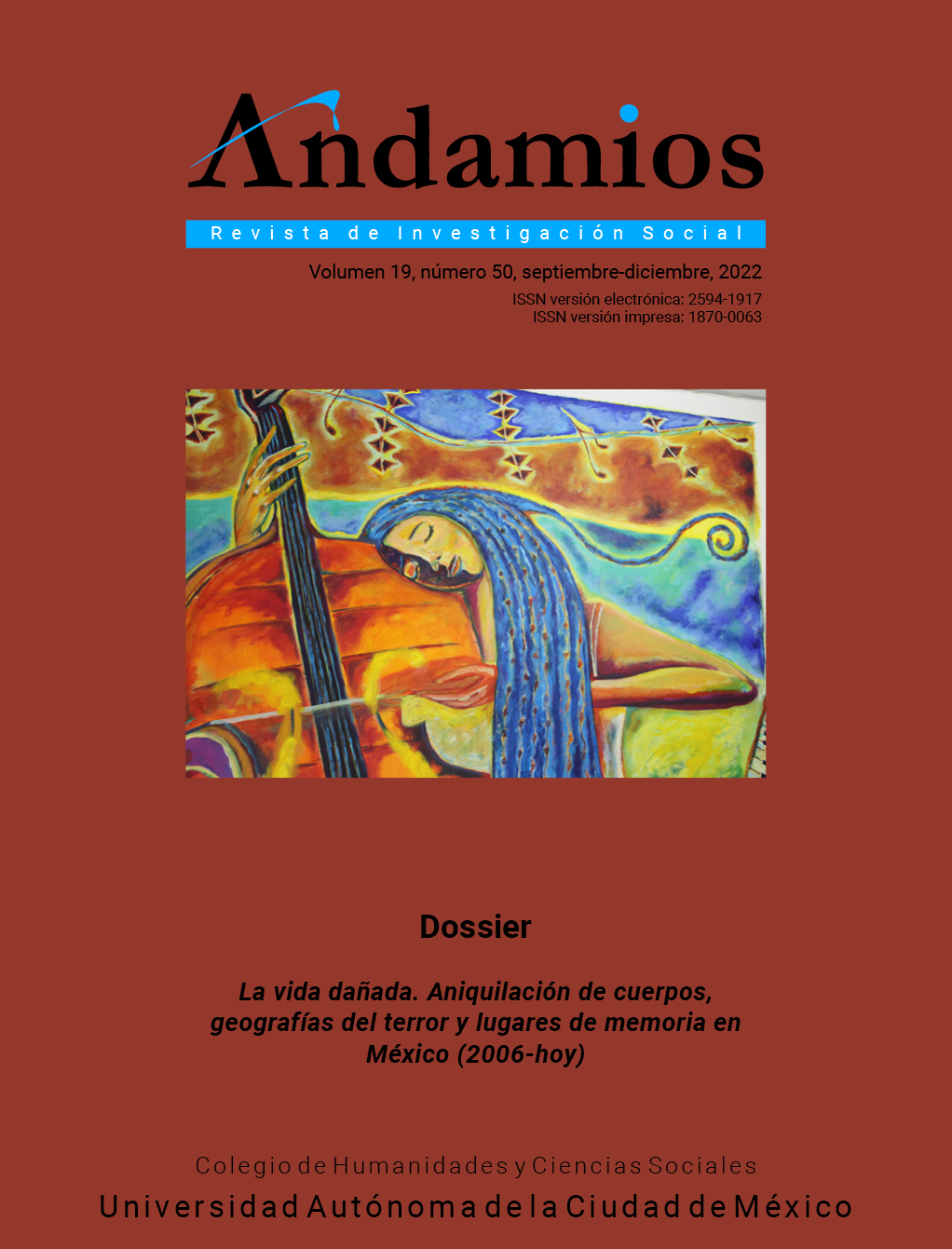Counter narratives in search of life: stories to restore humanity and combat oblivion
DOI:
https://doi.org/10.29092/uacm.v19i50.948Keywords:
Disappearance, criminalization, search, counternarratives, anonymityAbstract
More than 100,000 people are disappeared in Mexico, the urgency to find them has prompted groups to develop skills and knowledge to find their whereabouts and to conceive actions of resistance to oblivion and to appeal society to make its own their search and demand for justice. In this text I underline that the disappearance is also a discursive phenomenon where anonymity and criminalization of the victims of disappearance encourages the indifference and normalization of this crime; that the groups of victims generate counter-narratives that seek to subvert the hegemonic narrative about the disappeared and, based on three memory narratives, I propose that the counter-narratives in search of life seek to emphasize, not the disappearance, but the personality and daily moments of the absent people to generate resonance and build bridges of rapprochement towards those who are unaware of, or evade the depths of this crime in Mexico.
Downloads
Published
Issue
Section
License
This Journal is licensed under Creative Commons Mexico 2.5. It is allowed to reproduce and disseminate the contents of the Journal for educational or research purposes, not for profit, as long as they are not mutilated and cite the source (Andamios, Revista de Investigación Social) and the author.
The copyright of the articles published in Andamios, Revista de Investigación Social are transferred by the author(s) to Universidad Autónoma de la Ciudad de México when the originals have been accepted, so that they are published and distributed both in the printed and electronic versions of the Journal. However, as established by law, the author(s) retains their moral rights. The author(s) will receive a form of assignment of copyright that they must to sign when their original has been accepted. In the case of collective articles, the signature of one of the authors will suffice, provided that the latter has obtained the consent of the others.
Authors may use the material of their article in other works or books published by themselves, with the condition of quoting Andamios as the original source of the texts.
The articles contained in this publication are the responsibility of their authors and do not compromise the official position of Andamios, Revista de Investigación Social of the Universidad Autónoma de la Ciudad de México.


